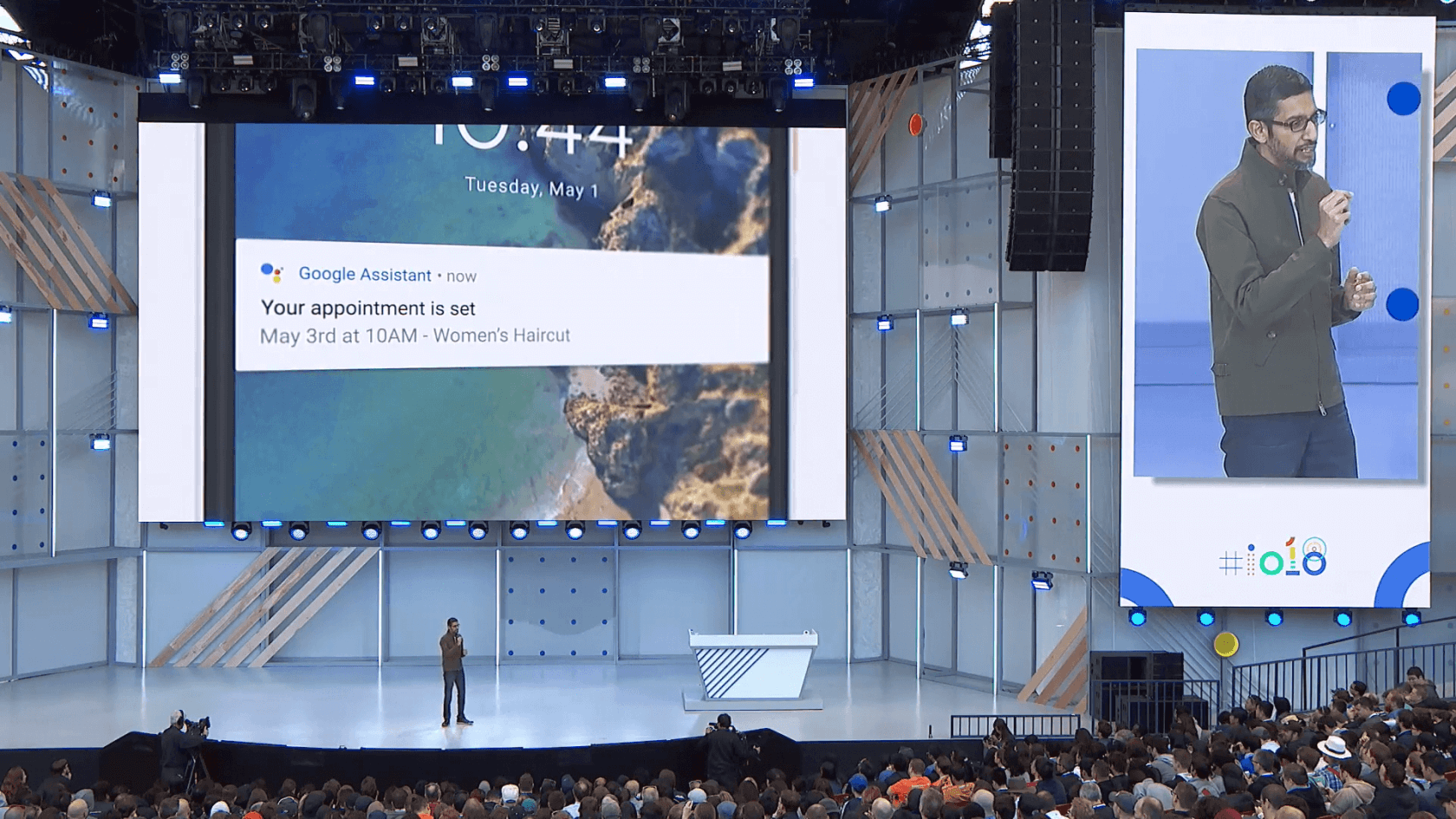Recap: When Google revealed its Duplex technology at I/O 2018, it stirred up quite a bit of controversy. Some thought that a robot passing itself off as a human was unethical. Others thought the whole thing was faked.

Indeed, I have to admit when I saw the demo, I was skeptical it was real. In fact, I was convinced that it was nothing more than Google’s vision of what they are shooting for in a virtual assistant. I figured it was a mockup using a human as the assistant just to illustrate what the company wants it to do, not what it could do.
Apparently, we were all wrong. Google Duplex is capable of exactly what was shown at the I/O conference. This news comes from Ars Technica, which was invited to a live demo of the technology in New York. Google rented out a Thai restaurant and asked journalists to come in and take reservations from Duplex themselves for a day.
During the demo reps from various media outlets got to take turns talking with the Duplex AI and most if not all were stunned.
“Believe the hype,” said Ars Technica’s Ron Amadeo. “Google's phone-call bot is every bit as impressive as promised.”

The demo used the Thai restaurant’s actual phone, so there was no set up on Google’s part. Developers are still working on the tech to link Google Assistant to Duplex, so calls had to be placed through a laptop rather than a smartphone. Other than that, the system worked just as it did in the keynote.
Google did not allow anybody to take recordings of the demo, but it provided them with a video (below) that Amadeo said, “is, honestly, perfectly representative of what we experienced.”
Duplex is capable of talking in various voices, both male and female, and can exhibit varying personalities.
“One of the strangest (and most impressive) parts of Duplex is that there isn't a single ‘Duplex voice.’ For every call, Duplex would put on a new, distinct personality. Sometimes Duplex come across as male; sometimes female. Some voices were higher and younger sounding; some were nasally, and some even sounded cute.”
Amadeo noted that all the calls started with Duplex identifying itself as an AI and that the call was being recorded. This disclaimer seemed to address some of the controversy stemming from the I/O demo. However, Google claims that while it is still working on the precise wording, it has always planned on notifying call recipients of these things.
Overall the technology was convincing and worked flawlessly even for the journalists who stumbled through the reservation process due to lack of experience. Duplex was patient and repeated information if requested.
However, when it came to spelling names out, the assistant needs some work. The enunciation of the individual letters was very robotic. It did not flow smoothly like a how a human would spell his or her name. Also, Duplex sounded too unprofessional for the most part.
“Duplex is much more casual [than Assistant],” said Amadeo. “Google basically built a secretary AI with Duplex, but it doesn't speak with the practiced confidence of someone accustomed to making reservations—it often sounds like a teenager ordering a pizza.”
However, Google is still dialing it in. Such small issues like these can be fixed before it launches. Speaking of which, the company still has yet to set a date for a rollout, but from the sound of it, it shouldn't be too far off.
https://www.techspot.com/news/75275-confirmed-google-duplex-technology-definitely-not-faked.html